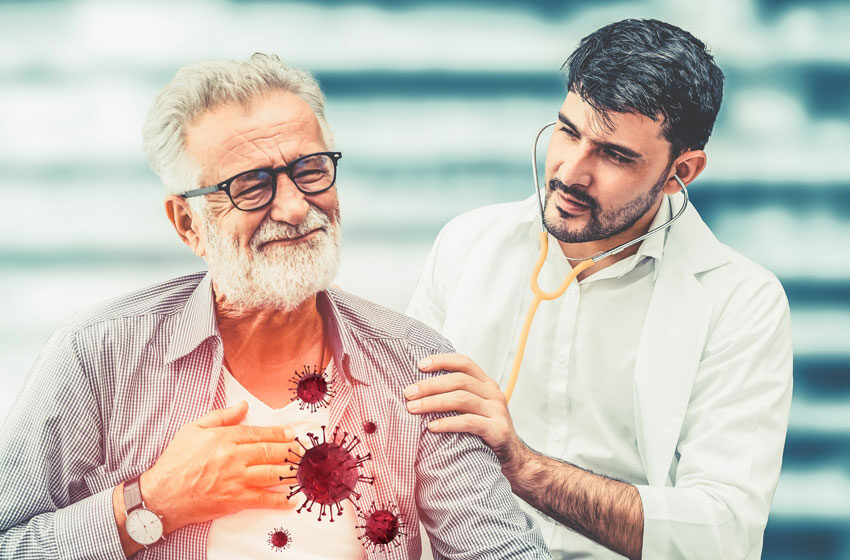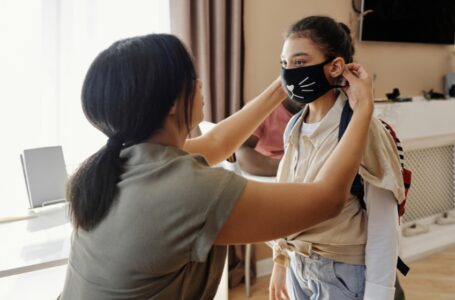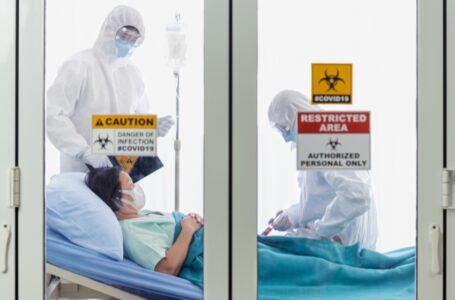How does Covid-19 affect heart health?

What is Covid-19?
Covid-19 is a disease that spreads through tiny liquid particles while coughing, sneezing, or breathing; a recently discovered new coronavirus strain causes it. Besides, coronavirus is a large family of viruses that causes sickness in humans and animals. Also, most people who get infected by the virus develop symptoms within 14 days of infection. Therefore, the initial treatment involves an incubation period ranging from 1 to 14 days.
How does Covid-19 spread?
People can contract Covid-19 from someone with the virus, which spreads when they sneeze, cough, or exhale, thereby spreading contaminated droplets in the air or on surfaces. So, naturally, when someone comes in contact with these contaminated droplets, they get infected with the virus.
How does Covid-19 affect a person’s health?
Upon getting infected with Covid-19, some of the first symptoms people encounter are respiratory system-related. For instance, they undergo symptoms such as fever, cough, and shortness of breath, while in the most extreme cases, one may suffer a severe lung condition called acute respiratory syndrome. Furthermore, extreme cases may cause patients to seek additional medical help like assisted ventilation to help the lungs.
Doctors and medical professionals have found that Covid-19 causes a storm of blood clots leading to other issues in the last two to three years. Blood clots cause breathing difficulties, stroke, organ failure, heart attack, and death, although more research is required on this. Some 75 percent of ICU patients develop these widespread clots, and their recovery rate is critically low.
Does Covid-19 affect the heart?

Research has shown that Covid-19 affects the heart in many ways; it affects the heart health directly or causes indirect damage to the heart due to the body’s severe immune reaction against the virus, known as a cytokine storm. As a result, it causes damage to heart muscle cells, often leading to a patient’s death.
Similarly, it can lead to direct cardiac injury by harming the heart muscle and aggravating pre-existing heart conditions like heart failure due to the stress inflicted on the body. But on the other hand, it causes cardiac arrhythmias, wherein the heart beats in an irregular or unstable rhythm.
It is uncertain whether COVID-19 has been responsible for heart attacks, but there are previous studies suggesting that patients who suffer respiratory infections like influenza and other coronavirus strains coronavirus) are at higher risk of a heart attack occurring afterwards. Although medical professionals are yet to figure out the reason behind such health complications, it has been ascertained that inflammation caused by the virus may cause coronary plaques to rupture and block via blood clots.
Is someone with heart disease more at risk?
Covid-19 attacks the lungs, indirectly affecting the heart because the heart and lungs are interconnected; the lungs oxygenate the blood, and the heart pumps it. So, naturally, someone suffering from cardiovascular disease is more at risk because they do not have the required reserve to deal with additional complications to their health. Moreover, heart disease patients often suffer from other medical conditions like high blood pressure and diabetes, making them more likely to be at risk of developing a severe illness because of the virus.
How can people with pre-existing conditions prepare or protect themselves?
People with pre-existing medical conditions like heart disease can maintain the following recommendations to protect themselves; however, they must have a lower threshold for seeking medical help upon experiencing Covid-19 symptoms:
- Detecting the disease as early as possible and then availing the medical help as per requirement.
- Informing healthcare service providers of the Covid-19 symptoms.
- After consulting the doctor, one must take necessary precautions to prevent the virus transmission.
- Get the vaccination dosages against Covid-19 and get vaccinated against the flu to reduce concomitant or concurrent infection risk.
- Stay up-to-date with vaccination.
- To avoid confusion and uncertainty, one should be aware of their closest testing clinics and have systems in place to seek immediate medical assistance. For instance, it includes, e.g., contactable family members or a personal medical alert device such as VitalCall.
How can people protect themselves from COVID-19?
By now, people know the basic measures that they should follow to evade Covid-19, such as:
- Washing hands regularly with soap and water for at least 20 seconds.
- One can use alcohol-based disinfectants or hand sanitisers.
- Avoid touching the eyes and face too often as viruses on the hands can enter the body through the nose and mouth and cause illness.
- Most importantly, people must practice social distancing, wherein they need to keep a considerable distance if they are in public places. Also, they must avoid crowded places and wear masks whenever they go out.
Besides, a mandatory step that people should follow is self-isolation upon experiencing Covid-19 symptoms and avoiding travelling to high-risk countries. Also, it is noteworthy to mention that if someone has any disease symptoms with a high possible exposure risk, they must get tested.





